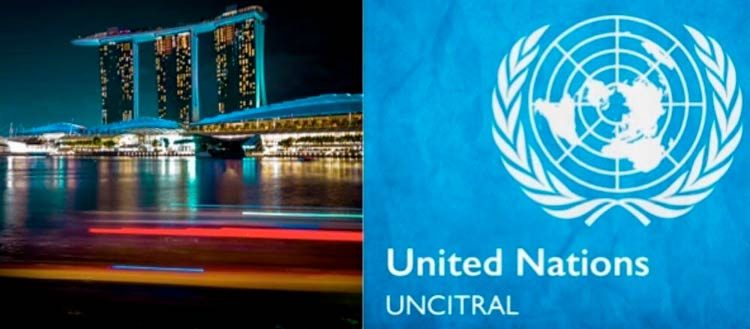On December 20, 2018, the UN Convention on International Settlement Agreements Achieved in the Course of Mediation was adopted. This convention, known as the Singapore Convention, aims to facilitate international trade and promote the use of mediation to resolve cross-border commercial disputes.
To date, 53 States have signed the Convention.
Mediation has its own specifics in the settlement of disputes. This process is flexible. The parties themselves establish their own procedures and work on their own agreement, they can discuss legal as well as non-legal issues and find the most acceptable solution to their dispute. Since this procedure is tailored to the needs and concerns of the parties, it may require less time and resources than litigation.
The Singapore Convention guarantees that the settlement reached by the parties becomes binding and enforceable in accordance with a simplified and well-organized procedure. In doing so, it contributes to enhancing access to justice and strengthening the rule of law.
Prior to the adoption of the Singapore Convention, a frequently cited problem in the use of mediation was the lack of an effective and consistent framework for cross-border enforcement of settlement agreements reached through mediation. It is with this need in mind that the United Nations developed and adopted the Singapore Convention. In this context, the Convention contributes to the development of a mature, rule-based global business system.
| Benefits provided by the Convention: The use of mediation provides significant benefits, such as: – reducing the number of cases in which a dispute leads to the termination of commercial relations; – facilitating the implementation of international transactions by participants in commercial activities; – Achieving economies in the process of administration of justice by states. The Convention contributes to the creation of a coherent legal framework for the fair and effective settlement of international investment disputes. As a binding international instrument, it will provide additional guarantees for the certainty and stability of this framework, thus contributing to the achievement of the Sustainable Development Goals. |
By becoming a Party to the Convention, a State or a regional economic integration organization agrees to apply the Convention to international settlement agreements reached as a result of mediation (Article 1 of the Convention).
The Convention provides that States, by signing the Convention, express their consent to be bound by it, subject to subsequent ratification, acceptance or approval.
The signature clause, subject to subsequent ratification, allows States to seek domestic approval of the Convention and enact any legislation necessary for the domestic implementation of the provisions of the Convention before it becomes legally bound by the Convention at the international level.
According to professional mediators, the Singapore Convention promotes the development of economic relations at the international level.
“British business mediator Bill Marsh, one of the top ten mediators in the world, considered the adoption of the Convention as a fact of strengthening the confidence of the international community in mediation and strengthening the influence of mediation on business processes and the investment attractiveness of states,” the Lawyer portal reports.
Sources : https://uncitral.un.org/sites/uncitral.un.org/files/media-documents/uncitral/ru/v1808436_russian_revised.pdf




